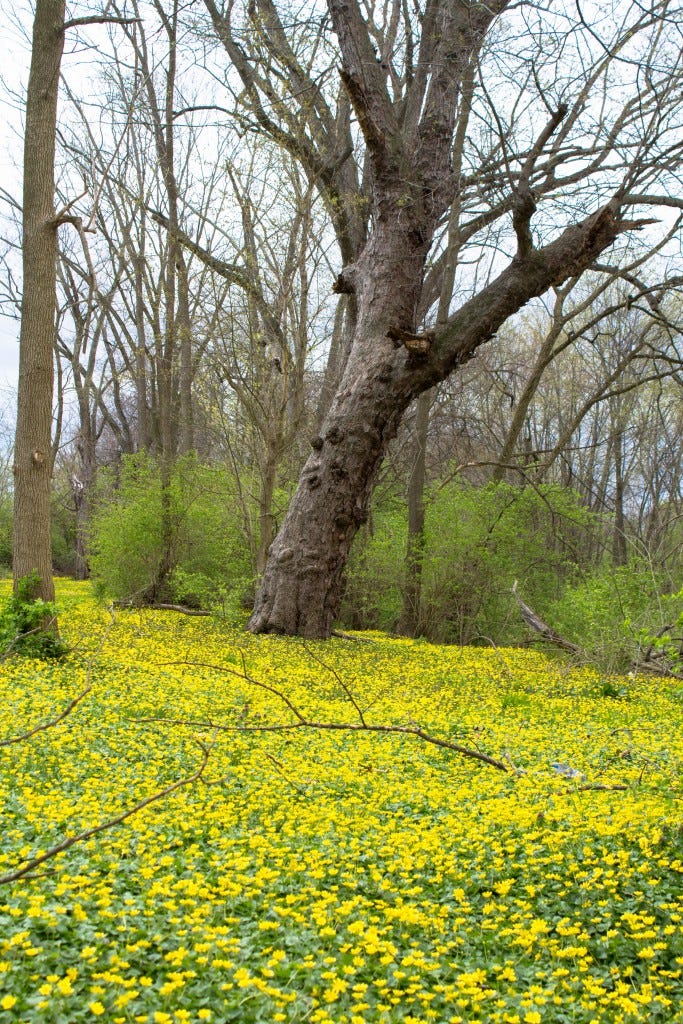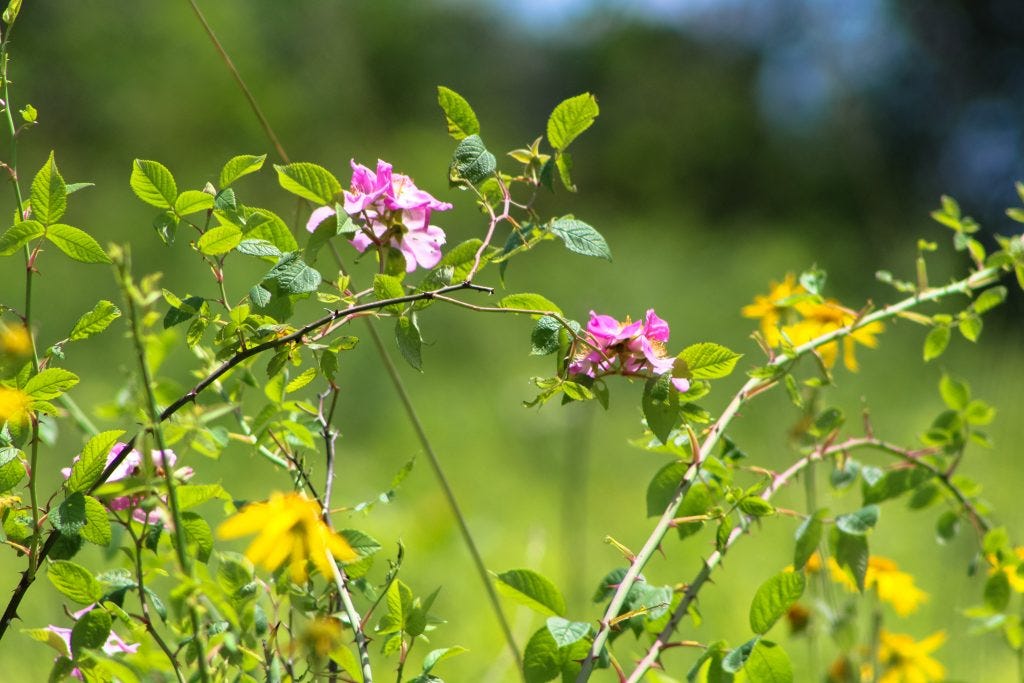The Scent of Rain
Do you know what the connection is between the scent of a rose, and a summer rain shower? The answer is in the volatile organic compounds.

Plants emit tiny light-weight compounds for many purposes, and from nearly all their parts. Root to bloom, the plant is in communication using chemicals. With these compounds they can signal for insects to 'stay away! I taste bad' or to a preferred pollinator 'come on in, the nectar and pollen are delicious.' Plants communicate with other plants, as well. Allelopathy is the plant emitting chemicals that suppress the germination of other seeds nearby, or even the poisoning of young shoots, leaving the plant with plenty of space to grow without competition. Plants even communicate when pests start munching on them, using their compounds to warn other plants and call in the rescue team in the form of predatory wasps. All of this emission has another effect, too. Millions of tons are produced every year by plants all across the globe, and those tiny molecules drifting through the air serve as condensation points for raindrops. Which is how that rose which smells so wonderful affects the rain that falls and leaves behind a scent of it's own. So the next time you inhale deeply after a rainstorm, and admire the petrichor, remember that it started with plants talking.

Emission of volatile organic compounds from petunia flowers is facilitated by an ABC transporter
By Funmilayo Adebesin, Joshua R. Widhalm, Benoît Boachon, François Lefèvre, Baptiste Pierman, Joseph H. Lynch, Iftekhar Alam, Bruna Junqueira, Ryan Benke, Shaunak Ray, Justin A. Porter, Makoto Yanagisawa, Hazel Y. Wetzstein, John A. Morgan, Marc Boutry, Robert C. Schuurink, Natalia Dudareva
Science30 Jun 2017 : 1386-1388




